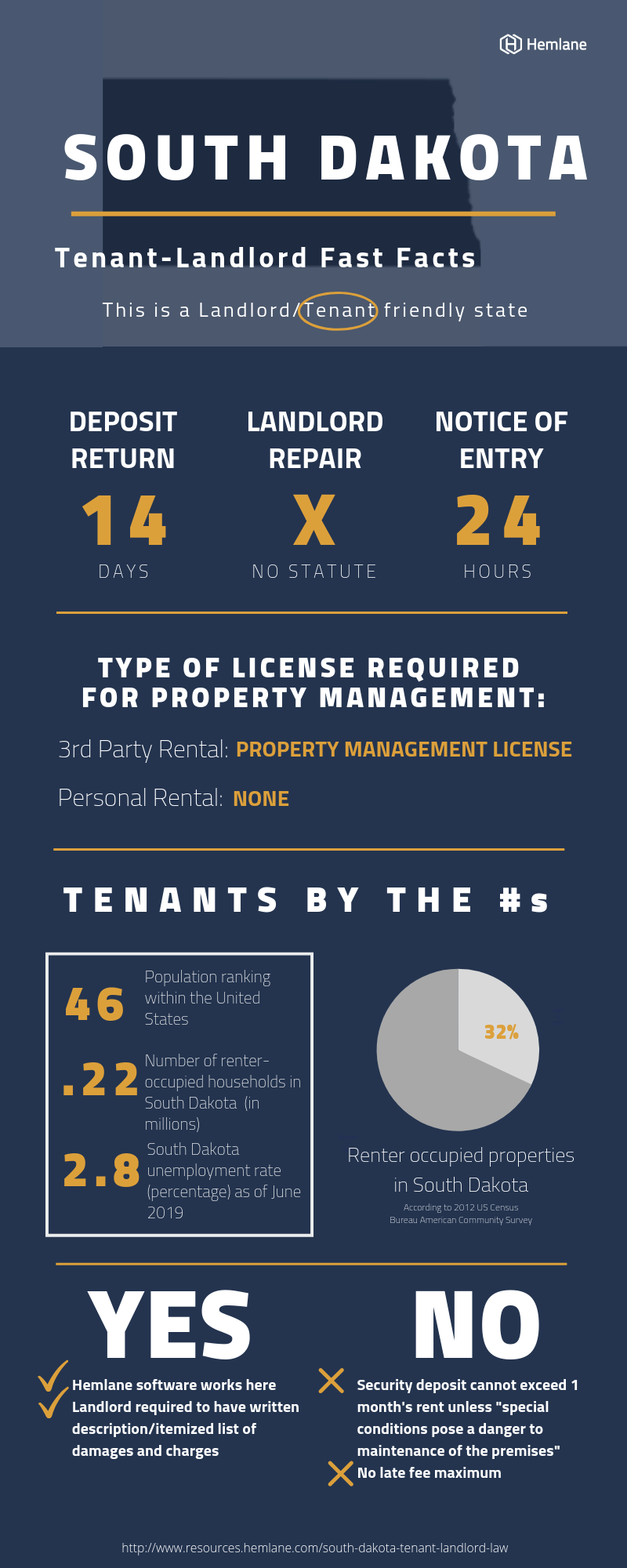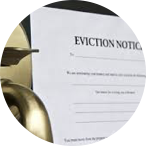South Dakota Tenant-Landlord Law

Fair Housing
The Fair Housing Act was created in order to ensure that everyone is treated equally during the housing process. It protects tenants from discrimination when seraching for a rental property. At the federal level the Fair Housing Act protects the following classes…
- Race
- Color
- National Origin
- Religion
- Sex
- Familial Status
- Disability
Learn about fair housing at the federal level here.
South Dakota protects the same categories as federal law (SD ST § 20-13-20).
Eviction Laws
The most stressful part of property management is when something goes wrong in such a way as to result in an eviction. There are two main types of evictions:
1. Failure to pay rent - the tenant did not pay you according to the terms of when rent is due.
2. Other lease violation - the tenant did not follow the agreed upon terms in the lease, such as no smoking, no pets, etc.
While we hope these do not happen to you, here are some simple steps to follow. We recommend consulting a local lawyer in advance as well.

Eviction Step #1
Inform your tenant with an official notice
An official notice is posted to the tenant. Typically, although this varies based State and county, the landlord hands the notice to the tenant in person, or posts the notice to the door if the tenant is not home. You also may need to send a copy via certified mail.

Eviction Step #2
Wait for the tenant to respond
When it is failure to pay rent, the tenant has 3 days to pay you otherwise the eviction notice can be filed with the courts.
When there is another lease violation (e.g. subletting), the tenant has a reasonable notice to cure to resolve the violation from the point that the eviction notice is served. Otherwise the eviction notice will be filed with the courts.

Eviction Step #3
File With Court
If the tenant has not paid you within the time period outlined in Step #2, then file with the local courts for the official eviction. Both you and the tenant will receive a specific date for the hearing.

Eviction Step #4
Attend the court date
You or your lawyer will want to attend the court hearing and bring proper documentation of the lease violation with you. You should prepare to bring the following, at a minimum:
- Your lease agreement
- Evidence of payment failures / history
- Proof that you served the tenant (Step #1)
- Any communications or other helpful records

Eviction Step #5
Sheriff to remove the tenant
If the tenant does not leave on their own, then you have a right, within a certain amount of time, to request for a sheriff to remove the tenant.

Eviction Step #6
Collecting damages
Most likely, the tenant owes you money for the lease violation. Here are some ways to collect money from the damages:
- Garnish wages
- File in small claims court
- Use a private debt collector
Early Termination of Lease
When there is not a lease violation, but the landlord or tenant wants to break the lease, the following regulations apply:
Early termination by landlord
If the landlord wishes to terminate the lease early, they have to give a notice period of at least as long before the conclusion of each rental period as the length of the period itself.
Early termination by tenant
If the tenant wishes to terminate the lease early, they have to give a notice period of at least as long before the conclusion of each rental period as the length of the period itself.
For more information on South Dakota Landlord Tenant laws please visit their website here.
As the situation with COVID-19 continues to evolve, the moratorium on foreclosures and evictions will continue to impact millions of rental properties across the country. For the most up to date information on this legislation, as well as to see if your city or county has additional directives in place, please contact your local representative.




